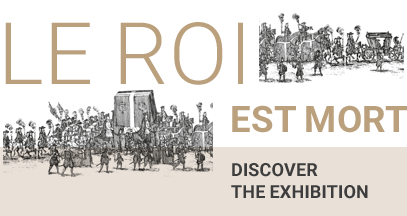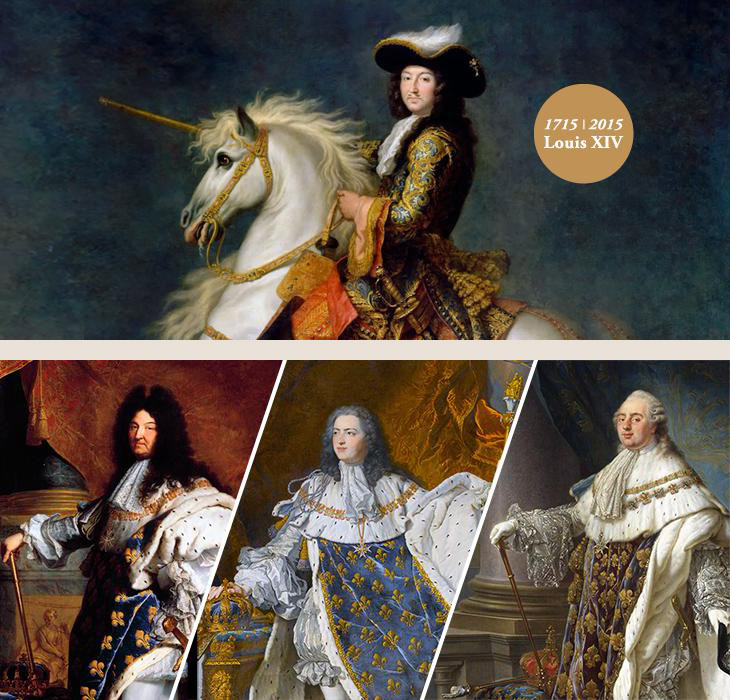ORGAN CONCERTS IN THE ROYAL CHAPEL
The four official organists for the royal chapel organ Michel Bouvard, Francois Espinasse, Frederic Desenclos and Jean-Baptiste Robin will be playing on 1st September 2015 to commemorate the 300th anniversary of the death of Louis XIV.
Throughout the day, from 10am to 6pm, the four musicians will take turns playing during the first 15 minutes of every hour. At 6pm they will put on an hour-long concert. The musical programme will showcase the diversity and development of styles of music appreciated in the Court during the King Sun's reign (Couperin, Lully, Marchand, Nivers etc.)
PRACTICAL INFORMATION
Concerts of the day : free admission for visitors with a 'Chateau' ticket.
Concert at 6pm : free for visitors under 26 years.
PROGRAMME FOR THE CONCERT AT 6PM
Louis Couperin (1626-1661)
Prélude du Grand Livre d'orgue, by Francois Espinasse
Fantaisie n° 26, par Michel Bouvard
Louis Couperin stopped working the same year as Mazarin, the year Louis XIV came to power and at the start of the "French Classical Era". Between 1559 and 1660 he followed the Court for negotiations for the marriage of Louis XIV to Marie-Therese, Infante of Spain, and played the organ for the royal celebration in Saint-Jean-de-Luz. The concision of his pieces demonstrates his great skill in polyphony, based on the classical style that followed.
Henry Du Mont (1610-1684)
Three trios by the four organists, each in turn
Made Master of the Royal Chapel in 1663, Henry Du Mont later received other titles in the Court such as Composer of Music of the Chapel in 1672 and Master of Music for the Queen in 1673. His organ trios for three hands are a unique part of the repertoire of French music, and are a valuable testimony to musical art at the beginning of the great king's reign.
Jean-Baptiste Lully (1632-1687)
Passacaglia from Armide (1686) by Jean-Baptiste Robin
This impressive passacaglia entitled "Les Plaisirs ont choisi pour asile", from the 5th act of the musical tragedy Armide by Lully, is a masterpiece of 17th-century theatre music. Originally performed with an orchestra, choirs and soloists, this musical legacy was transcribed for the harpsichord by his friend Jean-Henri d’Anglebert.
Marc-Antoine Charpentier (1643-1704)
In Nativitatem Domini Canticum H.416 : 1) Prélude –2) Nuit by Frederic Desenclos
This oratorio is one of Charpentier's greatest pieces with, notably, the instrumental poem describing the night on the hill near Bethlehem. Charpentier was never a composer of the Court but he wrote music for the Troupe du Roi, in particular for pieces by Corneille and Moliere. He is also one of the greatest French composers of religious music.
André Raison (1650-1719)
Offertory on 'Vive le Roy' by Frederic Desenclos
This joyful piece on 'Vive le Roy des Parisiens' (Long Live the King of Parisians) as he was entering the City Hall, was composed when Louis XIV had just undergone an initial fistula operation, and had gone to Notre-Dame de Paris to give thanks. The people had acclaimed him along the way! The piece is based on the tradition of Lebegue and Lully and finished with the song 'Vive le Roy'.
Louis Marchand (1669-1732)
Plein-Jeu, Tierce en taille, Grand Jeu du Te Deum by Jean- Baptiste Robin
Pierre-Louis d’Aquin said of Marchand in 1754: "he had in his favour rapid execution, consistent and keen talent, and turns of song that he alone knew. […] he could only be described as Great: he was a man of genius". This colourful musician, an organist 'by neighbourhood' of the Royal Chapel, was one of the greatest virtuoso composers of French plein-jeu organ music (with double pedal) and the only Te Deum for organ.
Louis-Nicolas Clérambault (1676-1749)
Suite of the 2nd tone
Duo - Flutes - Basse de Cromorne - Récit de Nazard
by Francois Espinasse
Born into a line of violinists and organists, Louis-Nicolas Clerambault was organist for the Household of Saint- Cyr. His two suites were published in 1710, at the same time that the Versailles chapel was finished, and heralded the gracious Louis-XV style. The composition is lighter, less elaborate and has more influences from the Italian style than any predecessor.
François Couperin (1668-1733)
Extracts from the Mass for convents:
Plein-jeu du Gloria - Cromorne en taille - Offertory on Grands Jeux
by Michel Bouvard
Couperin inaugurated the organ in the Royal Chapel and was the last organist 'by neighbourhood' that Louis XIV listened to in Versailles before his death. His music did not move away from the style or framework established by his contemporaries, but attained a remarkable depth of inspiration and workmanship.
With this offertory, Couperin offers a series of free variations on an accentuated tune in the style of a passepied. The second part offers an evasive meditation with a binary rhythmic structure, and the final section was based on a popular song entitled Louez le Dieu puissant.






















